David Cameron To Propose Broad Expansion Of Powers To Crackdown On ‘Extremism’
Fresh off an election victory, British Prime Minister David Cameron is set to propose a series of new measures to crackdown on extremism that raise serious civil liberties concerns.
Just a week after leading his Conservative Party to a surprising and solid victory, British Prime Minister David Cameron is preparing a crackdown on “extremism” that raises serious civil liberties concerns:
LONDON — Stoking the debate over the balance between security and civil liberties, Prime Minister David Cameron pledged on Wednesday to seek broad new police powers to combat the radicalization of Muslims in Britainand to end what he termed “passive” tolerance of extremism.
Mr. Cameron’s office said the proposals included a new system under which the police would be able to apply for “disruption orders” allowing them to restrict the activities of those thought to be radicalizing people. The orders would be overseen by the courts.
Details have yet to be made public, but according to British news reports, the orders could include a requirement that anyone subject to the restrictions submit in advance any material to be published in print, digitally, or on social media.
The proposed legislation, which will be included in the new government’s legislative program to be announced this month, might also include new powers to close buildings being used to promote violence or jihad, including mosques with radical preachers.
Other measures likely to be revived by the British government include updating laws on the retention of records of phone calls, emails and other data, a plan that critics have called the “snoopers’ charter.”
Mr. Cameron’s decision to press ahead with the proposals reflects the new freedom he has to pursue his Conservative Party’s agenda after his election to a second term last week and with an absolute majority behind him in Parliament — a shift from his first term, when he had to govern in a coalition with the centrist Liberal Democrats. Before the election, the Liberal Democrats, who have now been ousted from power, opposed the plan that Downing Street outlined on Wednesday and blocked Mr. Cameron from proceeding with it.
The new approach in Britain comes at a time when the United States and Europe are grappling with what weight to give to privacy, freedom of speech and assembly, and other basic democratic rights as they develop more aggressive surveillance and law enforcement responses to evolving threats from organized terrorist groups and individuals inspired by them. The debate has been galvanized by a series of events, from the revelations by Edward J. Snowden about the extent of spying by the National Security Agency, to fatal attacks this year in Paris, Copenhagen and Texas.
The British proposals were drawn up after the murder in May 2013 of a British soldier, Lee Rigby, in a vicious daylight attack on a street in southeast London. Since then, a significant number of Britons are thought to have left the country to fight with jihadist groups in Syria or Iraq, and security officials are worried that some of them could return with training and motivation to carry out attacks at home.
In much of Europe, a strong anti-immigrant strain — sometimes with an anti-Islam tinge — has driven political consideration of both security and social issues to the right. The political climate has also been shaped by the substantial numbers of Europeans who have traveled to Syria and Iraq to support the Islamic State or other radical groups, and the many more who have been exposed to radical propaganda.
The new approach in Britain comes at a time when the United States and Europe are grappling with what weight to give to privacy, freedom of speech and assembly, and other basic democratic rights as they develop more aggressive surveillance and law enforcement responses to evolving threats from organized terrorist groups and individuals inspired by them. The debate has been galvanized by a series of events, from the revelations by Edward J. Snowden about the extent of spying by the National Security Agency, to fatal attacks this year in Paris, Copenhagen and Texas.
The British proposals were drawn up after the murder in May 2013 of a British soldier, Lee Rigby, in a vicious daylight attack on a street in southeast London. Since then, a significant number of Britons are thought to have left the country to fight with jihadist groups in Syria or Iraq, and security officials are worried that some of them could return with training and motivation to carry out attacks at home.
In much of Europe, a strong anti-immigrant strain — sometimes with an anti-Islam tinge — has driven political consideration of both security and social issues to the right. The political climate has also been shaped by the substantial numbers of Europeans who have traveled to Syria and Iraq to support the Islamic State or other radical groups, and the many more who have been exposed to radical propaganda.
That feeling has been intensified in Britain by a number of high-profile cases, including young British girls traveling to Syria to join jihadist groups.
The Guardian has more details:
A counter-terrorism bill including plans for extremism disruption orders designed to restrict those trying to radicalise young people is to be included in the Queen’s speech, David Cameron will tell the national security council on Wednesday.
The orders, the product of an extremism task force set up by the prime minister, were proposed during the last parliament in March, but were largely vetoed by the Liberal Democrats on the grounds of free speech. They were subsequently revived in the Conservative manifesto.
The measures would give the police powers to apply to the high court for an order to limit the “harmful activities” of an extremist individual. The definition of harmful is to include a risk of public disorder, a risk of harassment, alarm or distress or creating a “threat to the functioning of democracy”.
The aim is to catch not just those who spread or incite hatred on the grounds of gender, race or religion but also those who undertake harmful activities for the “purpose of overthrowing democracy”.
They would include a ban on broadcasting and a requirement to submit to the police in advance any proposed publication on the web and social media or in print. The bill will also contain plans for banning orders for extremist organisations which seek to undermine democracy or use hate speech in public places, but it will fall short of banning on the grounds of provoking hatred.
It will also contain new powers to close premises including mosques where extremists seek to influence others. The powers of the Charity Commission to root out charities that misappropriate funds towards extremism and terrorism will also be strengthened.
Cameron will tell the NSC: “For too long, we have been a passively tolerant society, saying to our citizens: as long as you obey the law, we will leave you alone. It’s often meant we have stood neutral between different values. And that’s helped foster a narrative of extremism and grievance.
“This government will conclusively turn the page on this failed approach. As the party of one nation, we will govern as one nation and bring our country together. That means actively promoting certain values.
“Freedom of speech. Freedom of worship. Democracy. The rule of law. Equal rights regardless of race, gender or sexuality.
“We must say to our citizens: this is what defines us as a society.”
Glenn Greenwald is, not surprisingly, quite disturbed by this news:
If all that sounds menacing, tyrannical and even fascist to you — and really, how could it not? “extremism disruption orders” — you should really watch this video of Tory Home Secretary Theresa May try to justify the bill in an interview on BBC this morning. When pressed on what “extremism” means - specifically, when something crosses the line from legitimate disagreement into criminal “extremism” - she evades the question completely, instead repeatedly invoking creepy slogans about the need to stop those who seek to “undermine Our British Values” and, instead, ensure ”we are together as one society, One Nation” (I personally believe this was all more lyrical in its original German). Click here to watch the video and see the face of Western authoritarianism, advocating powers in the name of Freedom that are its very antithesis.
Threats to free speech can come from lots of places. But right now, the greatest threat by far in the West to ideals of free expression is coming not from radical Muslims, but from the very Western governments claiming to fight them. The increasingly unhinged, Cheney-sounding governments of the UK, Australia, France, New Zealand and Canada — joining the U.S. — have a seemingly insatiable desire to curb freedoms in the name of protecting them: prosecuting people for Facebook postings critical of Western militarism or selling “radical” cable channels, imprisoning peoplefor “radical” tweets, banning websites containing ideas they dislike,seeking (and obtaining) new powers of surveillance and detention for those people (usually though not exclusively Muslim citizens) who hold and espouse views deemed by these governments to be “radical.”
Anticipating Prime Minister Cameron’s new “anti-extremist” bill (to be unveiled in the “Queen’s Speech”), University of Bath Professor Bill Durodiésaid that “the window for free speech has now been firmly shut just a few months after so many political leaders walked in supposed solidarity for murdered cartoonists in France.”
It’s worth noting that issues such as freedom of speech and civil liberties are viewed quite differently in the United Kingdom and the rest of Europe than they are here in the United States. British libel and slander laws, for example, have long been far more stringent than those in the United States, and laws such as the Official Secrets Act and other laws place far greater restrictions on the media in reporting on matters that the government deems to be classified than even the stringent laws here in the U.S. In France and elsewhere, restrictions on activity that we would consider to be protected expressions of religious faith, such as wearing Muslim women and girls wearing head coverings in public, are quite commonplace. More broadly, the September 11th attacks, along with the terrorist attacks in 2004 and 2005, led to the adoption of anti-terrorism laws across Europe not dissimilar to those we have seen here. More recently, the rise of the problem of European citizens seeking to travel to Syria to join ISIS or, more disturbingly pull off the kind of terrorist attacks we saw in France earlier this year, which has led to talk of increased crackdowns on “extremism” across Europe. To some extent, then, one could argue that what Cameron is proposing here is consistent with the direction that laws across the pond have been going for quite some time now. Additionally, given the fact that Europeans are much more on the front line of the battle against home grown terrorism than we are, the reaction we’re seeing is somewhat understandable.
That being said, I have to agree with Greenwald here that Cameron’s proposal is yet another step too far from a government in the west that will do more to harm the civil liberties of citizens than it will to actually combat real terrorist threats. Most concerning, of course, are the provisions which would essentially allow police to silence an individual simply by providing evidence to the court that this person is an “extremist.” While the reports so far don’t indicate exactly what the standard of review for such an application would be, one has to imagine that it isn’t going to be very stringent and that the definition of what qualifies as “extremism” is not going to be very precise, meaning that the authorities will have a great deal of discretion in deciding who they will crack down on. Equally concerning is the idea of certain people having to clear their publications or statements with authorities before publication. This gets far too close to the complete state control of publication that exists in authoritarian regimes, and should be of grave concern to anyone concerned with civil liberties no matter where they live. Finally, expanding the dragnet to include forms of speech that “undermine democracy” or constitute “hate speech” is yet another problem with what Cameron is apparently looking to do here. Once again, such broad definitions give far too much discretion to law enforcement to shut down unpopular or inconvenient speech,
For the time being at least, most of what Cameron proposes here would never see the light of day in the United States. However, as the unequestioning passage of the PATRIOT Act in the wake of the September 11th attacks showed us, Americans have a disturbing tendency to accept restrictions on civil liberties in the name of safety. If there ever is another serious terrorist attack in the United States, you can be sure that those in power will seek to expand the powers of the very intelligence and law enforcement authorities that failed to detect or stop the attack in the first place, and they may well look to what Cameron and others in Europe have been doing as a guide. One can only hope that the American people will be willing to resist the clarion call of safety when and if that happens.
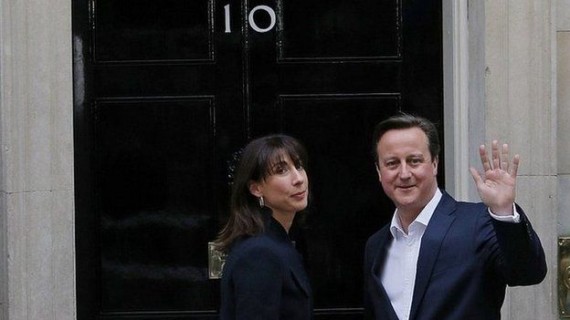

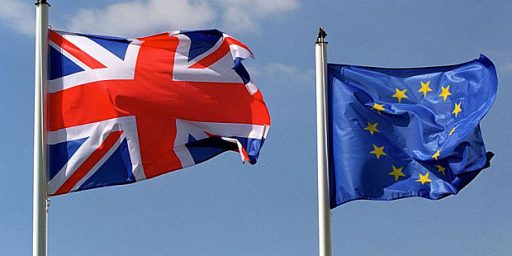
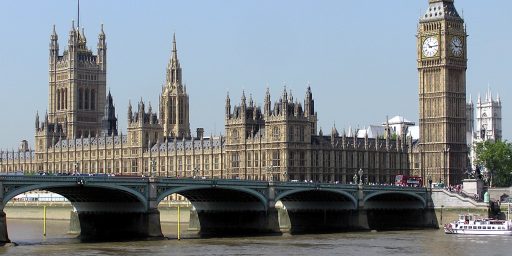
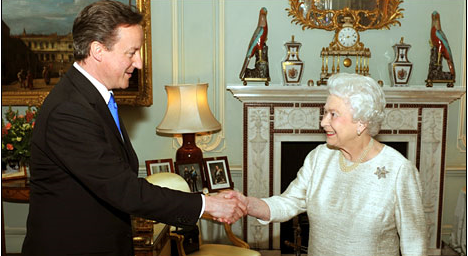
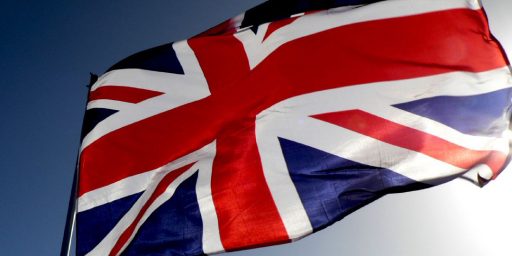
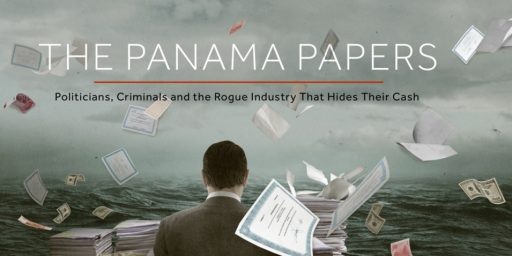
History tells us that this is incredibly unlikely.
Fear sells almost as efficiently as sex and puppies in the US. And all sides of our political spectrum are willing to peddle after a terror attack.
Actually, I think we’ve done reasonably well as a people in response to 9-11 and terrorism in general. People did not start dragging Muslims from their homes, or throwing nukes around, or institute the kind of pre-emptive censorship that Mr. Cameron seems to think he needs. I disagree with people who think TSA airport screening is fascism, or that NSA acquisition of metadata is Big Brother.
Things could easily have gone much worse. And they still could, which is why moderate, reasonable responses to the threat are necessary.
I can’t think of a better way to promote extremism than a ‘broad expansion of power’.
Ah yes… pay no attention to the tragically incompetent economic policies that will have the country in yet another recession before Xmas; THERE ARE TERRORISTS AT YOUR DOOR!
As Tom Wolfe said, “the dark night of fascism is always descending in the United States and yet lands only in Europe.”
Correct. What is proposed would never see the light of day in the US. At night, however…. anything goes.
It is not anti – immigration in itself. It is anti-terrorist immigration. Radical muslims and extremists of any nation or culture need to be kept out. Snd those already there need to be shipped out.
Vs.